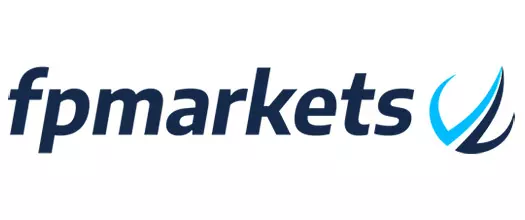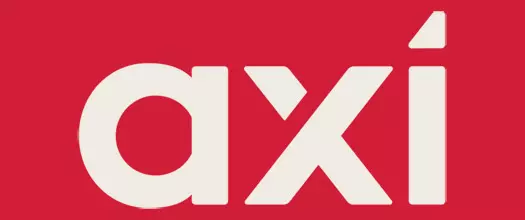The Financial Times Stock Exchange 100 Index, or the FTSE 100 Index for short, is the UK’s most popular stock market index. Launched in 1984, its predecessor was an index called FT30. FTSE constituents are 100 of the most highly capitalized blue-chip companies listed on the London Stock Exchange. The FTSE constituents are subjected to reviews once every quarter. Following each review, some companies will exit, whereas others will enter, thus having a direct impact on share price and representing a busy day of trading.
Our team of expert traders tested several regulated and trustworthy FTSE 100 brokers and compiled a toplist with the best among them. Every platform allowing CFD’s on the FTSE 100 Index received a quality score based on several factors, including Trustpilot rating, regulation, fees and commissions, available trading platforms, customer service and more.
 Fusion Markets74-89% of retail's CFD accounts lose money
Fusion Markets74-89% of retail's CFD accounts lose money FP Markets73.85% of retail investor accounts lose money
FP Markets73.85% of retail investor accounts lose money Global Prime74-89% of retail CFD accounts lose money
Global Prime74-89% of retail CFD accounts lose money Pepperstone75.5% of retail investor accounts lose money
Pepperstone75.5% of retail investor accounts lose money AxiThe vast majority of retail client accounts lose money
AxiThe vast majority of retail client accounts lose money XM Group72.82% of retail investor accounts lose money
XM Group72.82% of retail investor accounts lose money
Top FTSE 100 Trading Brokers
Technology advancements in recent years have led to growth in many areas, including trading. As a result, the market is flooded with online brokers and finding one that fits your needs is not always an easy task. And here we are not talking about whether a brokerage is good at its job, but whether it tallies your trading style. To help you get through this process more easily, we prepared a selection of ten trustworthy FTSE 100 Index trading brokers, summarizing the information about the respective leverage, spreads, fees, commissions, and other important features.
- Min Deposit$0Fees$0 for swap-free accountsCommissionsFrom $0SpreadFTSE 100 min spread - 0.3; average spread - 1.1Leverage EU1:20Leverage non-EU1:100All financial products involve risk and you should ensure you understand the risk involved as certain financial products may not be suitable for everyone. Trading in margin foreign exchange and derivatives carries a high level of risk and you may incur a loss that is far greater than the amount you invested. Past performance of any product described on this website is not a reliable indication of future performance. Any information or advice contained on this website is general in nature and has been prepared without taking into account your objectives, financial situation or needs.
Established in 2017, Fusion Markets is still considered a young brokerage in the online trading field but despite this, it has earned a reputation as a top-tier platform. It enjoys an impressive 98% positive customer feedback as per the data published on the Trustpilot platform. Many of the reviews mention reduced trading costs and professional customer support as key advantages of the brokerage company.
Clients of Fusion Markets can set up two types of live accounts – Classic and Zero. The first is designed with novice traders in mind as all applicable fees and commissions (if any) are incorporated in the spreads. Thus, no pre-trade calculations are needed. Zero accounts are suitable for experienced actively operating traders who are capable of taking advantage of tighter spreads despite the $4.50 commission. Although at the beginning of its existence, Fusion Markets did not feature Islamic type of accounts, this is no longer the case. The broker’s swap-free accounts give access to indices and other financial instruments, over 60 in total. Besides FTSE100, traders can take long and short positions on other indices such as Nikkei225, Nasdaq100, and S&P500.
As we often say, no matter how favorable the trading conditions are, competent and timely customer care assistance is paramount. We personally checked how the trading broker performs in this regard. We started a live chat session with a question about swap rates. The answer not only came in less than a minute but was accompanied by a screenshot in order to more easily navigate towards the relevant information.
- 2. eToroMin Deposit$10 - $10,000FeesOvernight fees:
- Buy - $ -1.21042247
- Sell - $ -0.49159502
CommissionsN/ASpread1.5Leverage EU1:20Leverage non-EUN/A51% of retail investor accounts lose money when trading CFDs with this provider.With more than a decade of experience in the financial world, eToro has established itself as one of the leading and most reputable trading platforms around the globe. The multi-jurisdiction regulated brokerage spreads its operations on indices, stocks, cryptocurrencies, commodities, and ETFs. The brand has chosen the approach not to rely on third-party trading platforms and offers user-friendly proprietary options, both web and mobile.
The in-house developed platform is characterized by an intuitive interface that allows for flawless trading of more than 7,000 financial instruments. Probably its most distinctive feature is the copy trading functionality that allows inexperienced traders to follow the good practices of top-performing users of the platform. By clicking on the statistics tab of a particular trader you will gain access to useful information about equity growth and other important indicators. There is a $1 minimum requirement for each copied position. Traders can set a stop loss for a certain copy, add/remove funds, or put the copy on pause.
Currently, eToro provides its users with the opportunity to trade more than 25 indices covering markets from different regions of the world. The most popular ones are UK100, NSDQ100, SPX500, GER40, and DJ30. Executing trades via CFDs allows for opening leveraged buy (long) or sell (short) positions.
- 3. PepperstoneMin Deposit$200 (recommended)FeesOvernight fees:
- 2.5% for CDFs
CommissionsFrom 0%Spread1.0Leverage EU1:20Leverage non-EU1:200CFDs are complex instruments and come with a high risk of losing money rapidly due to leverage. 76.3% of retail investor accounts lose money when trading CFDs with this provider. You should consider whether you understand how CFDs work, and whether you can afford to take the high risk of losing your money.“In a world of probabilities, see the possibilities” is the motto of Pepperstone and it largely reflects the overall approach of the trading broker – to create a favorable environment for lots of traders by offering a rich product portfolio accompanied by different types of accounts tailored to the experience level and preferences of each user. Pepperstone does not burden its clients with additional fees on deposits, withdrawals, and in case of inactivity thus enabling them to focus on trading-related matters only.
Pepperstone operates with a wide range of platforms suitable for every style of trading. Each of the offers is a third-party option, as Pepperstone has not developed its own interface. Traders can choose between MetaTrader (MT) 4&5, TradingView, and cTrader, which is a high-end system with direct liquidity provider pricing and advanced order capabilities. No matter which platform you choose, you will be able to use its desktop version or in the form of an in-browser app or dedicated trading application for iOS and Android devices.
The markets present on Pepperstone are indices, Forex, commodities, shares CFDs, ETFs, cryptocurrencies, and currency indices. Traders will find competitive spreads for popular regional indices from North America, Europe, Asia, and Africa. Index trading with this brokerage is commission-free since commissions are charged only on Forex and CFD Equities trading with CFD Razor accounts.
- 4. easyMarketsMin Deposit$25FeesVariable overnight feesCommissionsNoneSpreadFrom 1.3Leverage EU1:20Leverage non-EU1:100CFDs and Options are complex instruments and come with a high risk of losing money rapidly due to leverage. 75% of retail investor accounts lose money when trading CFDs with this provider. You should consider whether you understand how CFDs and Options work and whether you can afford to take the high risk of losing your money.
Being established in 2001, easyMarkets is among the most experienced trading brokers today with thousands of clients from different parts of the world. The brand’s group of companies holds licenses issued by CySEC (Cyprus), ASIC (Australia), FSA (Seychelles), and FSC (British Virgin Islands). Over the years, the broker has won over 40 prestigious awards, the latest of which is Leading Broker of the Year at the Forex Expo Dubai 2024.
What we liked when we first accessed easyMarkets is that pricing details are transparent and readily accessible to users. We have summarized the information about the FTSE 100 index in the table above. We wish to make the clarification that the indicated spread of 1.3 is the minimum point of the variable spreads available through the MT5 platform. Values are fixed at 2.2 for MT4 and 2.4 for easyMarkets Web / App & TradingView.
The great degree of trust that traders have in easyMarkets is also due to the fact that the brokerage provides them with a whole set of risk-management tools and thus helps them feel assured that they will not experience major financial losses. Negative balance protection, guaranteed stop loss, and no slippage fall within this category. Each of these tools is provided with a detailed explanation and instructions on how to use them properly.
- 5. City IndexMin Deposit$100FeesOvernight financing:
- long positions - equivalent base rate +2.5%
- short positions - equivalent base rate -2.5%
CommissionsNo commission on CFDsSpreadFrom 1.0Leverage EU1:20Leverage non-EU1:200CFDs are complex instruments and come with a high risk of losing money rapidly due to leverage. 69% of retail investor accounts lose money when trading CFDs with this provider. You should consider whether you understand how CFDs work and whether you can afford to take the high risk of losing your money.City Index is a global trading broker with offices in the UK, Australia, and Singapore. Its operations are licensed by the respective regulatory bodies in these regions – the Financial Conduct Authority, the Australian Securities and Investments Commission, and the Monetary Authority of Singapore. Clients of City Index can choose from more than 13,500 markets utilizing an extensive selection of trading tools.
The brokerage enables its clients to trade FTSE 100 (UK 100) and over 40 other major indices either via spread betting or CFDs. Spreads of this particular index start from 1.0 for the hours between 8-4.30pm and widen outside this period. City Index charges no commission on trades involving contracts for difference.
As regards the trading platforms offered by the broker, they represent a good enough choice for different types of traders. Thanks to MetaTrader 4, WebTrader, and the downloadable trading applications, you can operate with FTSE 100 no matter what your current location is. Those users who plan to work with MT4 should keep in mind that the minimum system requirement is for Windows 7 while the brokerage strongly recommends your device to work with the 64-bit version of Windows 10. For your convenience, City Index has published a comparison table so that you can quickly see what the crucial differences between the available platforms are.
- 6. OandaMin Deposit$0FeesFinancing charges or credits on overnight position calculated as per formulaCommissionsFrom $0SpreadFrom 1.0Leverage EU1:20Leverage non-EU1:20CFDs are complex instruments and come with a high risk of losing money rapidly due to leverage. 78.3% of retail investor accounts lose money when trading CFDs with OANDA Europe Markets Ltd. You should consider whether you understand how CFDs work and whether you can afford to take the high risk of losing your money.
Oanda is an industry leading trading broker that has immensely grown since its establishment in the distant 1996. Nowadays, the brand is an undisputed member of the club of truly global brokers conducting operations in the US, Australia, the UK, Japan, and many other regions. Its large-scale activity is compliant with local and international regulations which is confirmed by a broad range of active licenses.
We like FTSE 100 trading brokers that do not limit their clients in terms of trading platforms and provide them both with in-house developed and third-party options. This is exactly the case with Oanda since the brokerage offers its own Oanda Trade platform in desktop, web, and mobile versions as well as the ever-popular MetaTrader 4 and the newest entrant to the broker’s portfolio – TradingView.
Unlike many of its competitors in the online trading field, Oanda only has Standard and Professional account types. As the main focus of the current article is retail UK 100 trading, let’s say a few words about standard accounts with this broker. It enables trading of 70 FX pairs as well as CFDs on indices, commodities, metals, and bonds. Regardless of the exact form of platform used, registered traders are entitled to take advantage of the guaranteed stop-loss order functionality (GSLO).
- 7. XTBMin Deposit$0FeesSwap point
- long: -0.025556%
- short: -0.000000%
Commissions$0 on Standard accountsSpreadFrom 1.7Leverage EU1:20Leverage non-EU1:200CFDs are complex instruments and come with a high risk of losing money rapidly due to leverage. 76% of retail investor accounts lose money when trading CFDs with this provider. You should consider whether you understand how CFDs work and whether you can afford to take the high risk of losing your money.XTB is a good choice for traders whose priority is to minimize trading and non-trading costs while operating with the FTSE 100 index. The brokerage has commission-free options, no minimum deposit requirement, and offers spreads starting from 1.4. The leverage is the usual for the industry – up to 1:200 for non-EU accounts and up to 1:20 for accounts set up in European countries.
Part of XTB’s service range is negative balance protection, an increasingly popular feature of today’s online brokers. Keep in mind, however, it is only available to traders from the UK and EU. On the other hand, due to local regulations, they are not entitled to receive cashback rebates like the rest of XTB’s clients.
Trading is entirely carried out through the proprietary trading platform xStation 5 and the respective mobile application. Simplicity and user-friendliness are the two major advantages of the desktop platform that also has state-of-the-art charting tools contributing to better analysis and convenient placement of market orders, stop losses, take profits, and others. xStation 5 is available in the form of a web-based platform and as a downloadable desktop version. On-the-go traders can download the dedicated mobile app from the App Store or Google Play.
- 8. Plus500Min Deposit$100Fees
- Overnight funding fee¹
- Currency conversion fee²
- Monthly inactivity fee³
CommissionsNoneSpread2.0Leverage EU1:20Leverage non-EUUp to 1:15077% of retail investor accounts lose money when trading CFDs with this provider. You should consider whether you can afford to take the high risk of losing your money.Plus500 is an online trading broker that operates with contracts for difference via its proprietary trading platform both through the web and on mobile. Registered users of Plus500 can perform CFD trading on indices, Forex, commodities, crypto, shares, options, and ETFs. As regards indices, they are currently just over 35 with the most actively traded being USA 30-Wallstreet, UK 100, Germany 40, and Japan 225.
The brokerage brand has taken care to gain licenses in almost all jurisdictions where its services are available. The relevant authorities regulate Plus500 in Cyprus, the United Kingdom, Australia, New Zealand, South Africa, Seychelles, Estonia, Singapore, and Israel.
The WebTrader platform offers a simplified trading experience that is stable and easy to use across multiple devices. The brand’s main website has a Trading Academy section featuring an eBook, a set of educational videos, and a particularly extensive FAQ category so that traders can learn everything they need to know about working with WebTrader. The platform enables selecting any of the more than 2,000 CFD instruments, creating watchlists, placing orders, etc. MetaTrader is probably not a preferred option for advanced actively operating traders as the platform does not allow the implementation of third-party analytical and automation tools.
¹Daily overnight fee is calculated with the formula Trade Size * Position Opening Rate * Point Value * Daily Overnight Funding %
The formula for Share CFDs: Trade size * Daily Close Rate * Point Value * Daily Overnight Funding %²Up to 0.7% of the trade’s realised net profit and loss
³$10 per month if you have not logged in for more than 3 months
- 9. HF MarketsMin Deposit$100FeesSwap rates:
- Short: -0.50
- Long: -0.85
CommissionsFrom $0SpreadFrom 1.7Leverage EU1:20Leverage non-EU1:200Trading Leveraged Products such as Forex and Derivatives may not be suitable for all investors as they carry a high degree of risk to your capital. Please ensure that you fully understand the risks involved, taking into account your investments objectives and level of experience, before trading, and if necessary, seek independent advice.The HF Markets Group describes itself as an award-winning conglomerate and it seems to have every reason to do so. So far, the trading broker has won a whole basket of prestigious awards, two of which are Best Multi-Asset Broker Global at the 2021 Pan Finance Awards and Best CFD Trading Conditions 2021 by the World Economic Magazine. The constituent companies of HFM are regulated by CySEC, FCA, DFSA, FSCA, FSA (Seychelles), and CMA (Kenya). The brokerage has 28 other registrations in European jurisdictions.
Users of HF Markets can operate with more than 1,000 trading instruments distributed in the following asset classes: indices, Forex, metals, energies, CFD stocks, bonds, commodities, physical stocks, and ETFs. Trading CFDs on indices with HF Markets is characterized by ultra-fast execution of trades across 13 powerful trading platforms. As regards UK 100 and the other indices, they are available for trading in the form of spot contracts and future contracts. Typical spot spreads for UK100 for Premium Account holders stand at 1.2. As for Futures contracts, typical spreads start from 3.96. Traders are eligible for negative balance protection regardless of the asset form.
HF Markets strives to serve different types of traders and that is why it has created four accounts each coming with a different minimum deposit requirement and purpose in general. We advise you to carefully check the relevant T&Cs since they may differ depending on your location. This applies to aspects like account currency, margin call, and stop out level. The good thing is that the Demo account provided by the brokerage closely resembles the real trading environment, and has unlimited usage and a virtual budget of up to $100,000.
- 10. IGMin DepositFrom $250Fees
- Overnight funding admin fees: 2.5 - 3%
- Guaranteed stop premium: 1.5
CommissionsFrom 0%SpreadFrom 0.8Leverage EU1:20Leverage non-EU1:200Spread bets and CFDs are complex instruments and come with a high risk of losing money rapidly due to leverage. 74% of retail investor accounts lose money when trading spread bets and CFDs with this provider. You should consider whether you understand how spread bets and CFDs work, and whether you can afford to take the high risk of losing your money.Options and turbo warrants are complex financial instruments and your capital is at risk. Losses may be extremely rapid.Professional clients can lose more than they deposit.The value of shares, ETFs and ETCs bought through a share dealing account, can fall as well as rise, which could mean getting back less than you originally put in. All trading involves risk.If you want to start trading with a big CFD trading company with many years of experience and a range of licenses issued by reputable financial authorities, IG is among your most logical choices. The brand appeared on the market in 1974 and since then has won quite a few prestigious awards. We will not list them all but will only mention the most recent one, namely Best Multi Platform Provider at the 2022 ADVFN International Financial Awards.
Having reviewed lots of trading brokers so far, we can safely say that the spreads, commissions, and fees imposed by IG are very competitive compared to the ones offered by other major players in the online trading field. What is more, the relevant information is understandably presented and is accessible without the need to log in to your account first. The only issue that does not fit into the concept of affordability is the minimum deposit. Its amount varies according to the trader’s country of residence – $250 in the US, $450 in Australia, €300 in the EU, etc.
Given the marked diversity in terms of financial instruments, trading platforms, and payment solutions, we are slightly puzzled by the absence of a copy trading functionality. Some other perks such as automated trading and back testing are accessible only via third-party apps.
As for the indices trading portfolio of the broker, IG gives access to 30 global indices, including FT100, Germany 40, and Australia 200. With this broker, Indices can be traded as an option, spread bet, or as a CFD.
FTSE 100 is a stock index that is widely used throughout Europe. The constituents of the Footsie, or UK 100, as it is also called, are the 100 companies listed on the London Stock Exchange that have the largest market capitalization. The index represents approximately 81% of the UK’s market capitalization. The majority of these companies are multinational entities headquartered in the UK which means the index is not that indicative of the health of the country’s economy, but rather shows what business environment the British company law provides.
The performance of the 100 companies is closely tracked through reviews and eventual substitutions are made every quarter – in March, June, September, and December. We can safely say that any changes made reflect the current state of the companies since value information is derived at the end of the day preceding each review.
How FTSE 100 Trading Works for Traders and Brokers
Traders who operate with the FTSE 100 must keep one specific aspect in mind. The current UK 100 index value is highly dependable on the British pound currency rates. As most companies in the UK 100 have their income in foreign currencies, the movement of the sterling is capable of causing a downward or upward price movement.
The high interest in trading the FTSE 100 and other popular indices is mainly due to the fact they are considered secure and come with relatively low fees and commissions imposed by the trading brokers. The main reason for indices not to carry as much risk as stocks for example is their broad nature. A large number of stocks in multiple industries are covered which means devastating collapses are hardly possible. Even if a few companies suffer hard times and their stock price gets low, there is a chance for the other index constituents to mitigate the adverse effect.
Ways to Trade the FTSE 100 Index
There are several methods for trading the UK100, which entail either the direct purchase of shares or ETFs or speculating on the price movement of the underlying product through derivatives.
* CFDs
The most commonly used derivative instrument offered by FTSE 100 trading brokers is CFD (contract for difference). It enables exchanging the difference between the opening and closing price of the traded index. Buying a CFD opens a long position while by selling, traders go short.
The other methods to operate with the UK 100 index are:
- Spread betting
While spread betting closely resembles CFD trading, there are certain differences between the two derivative products. Spread betting on the FTSE 100 index involves using spread bets, which are financial derivative instruments, to take either a long or short position on the asset’s price. Traders who buy through spread bets anticipate that the price will increase, while those who sell believe the price will decrease. As spread betting is free from capital gains tax (CGT), it can be more tax efficient compared to CFDs. With spread bets, traders bet an amount of money per point on whether the price will rise or fall. - Futures
Trading the FTSE 100 Index through futures (or forward) contracts is another popular way to get exposure to this financial instrument. A buyer and a seller reach an agreement to trade the asset at a future price and date, enabling speculation on the price of the index over-the-counter, instead of through an exchange. - Options
Similarly to futures, options are financial contracts, having expiry dates, upon which traders would settle the difference between the contract’s opening and closing price. However, there is a difference between them too. With options, traders are under no obligation to settle their trades. In case they decide to do so they just need to pay the premium, also known as a deposit or margin. - Exchange-traded funds (ETFs)
Trading FTSE 100 through exchange traded funds is another way to get exposure to the index. With this method of trading, traders take a position on the price of the ETF rather than the current index level of the FTSE 100.
FTSE 100 Index Trading Hours
As regards FTSE 100 trading hours, they are from Monday till Friday between 8am and 4pm UK time, which is in line with the London Stock Exchange opening and closing hours. However, lots of online trading brokers allow for 24/5 trading with customer support within the same hours.















